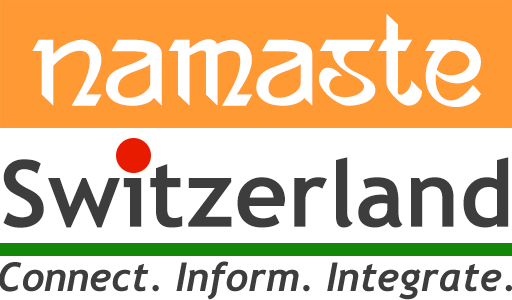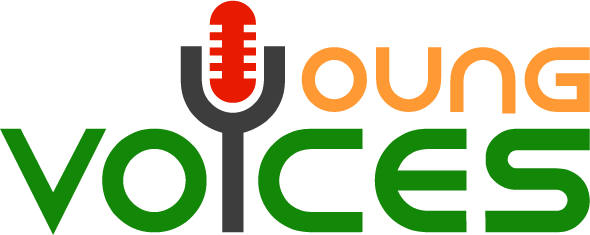Have you ever wondered how polyglots easily acquire a new language in a matter of a few months? Samvidha Srinath shares some tips and tricks on learning new languages.
As Samvidha commences her writing, she makes a subtle yet valuable clarification between acquiring a language and learning it. She explains that there is a huge difference between acquiring a language and learning a language. “Children acquire languages because they need to survive and communicate with people. They also need to differentiate between different sounds. A classic example is when a mother gives the baby food (in Tamil, we call it ‘mammam’). The baby associates the sound ‘mammam’ with food. We as adults are already at an advantage because we don’t have to go through the process of differentiating between sounds and signals.”
Another clarification from her: “People have the misconception that they don’t have the language gene. There is no such thing as a language gene that makes one person more capable of learning languages faster than another. However, the desire to learn a new language differs from person to person; i.e. if you are really passionate and interested in learning a language just for the sake of learning it – and not because you have to fulfil a requirement, such as a career advancement, etc., then you’ll surely progress faster than someone learning a language because he has to.”
Ease your way through language learning
Find your ‘Why’
The answer to the question above is very simple. Polyglots are passionate and they love the idea of learning a new language, no matter the obstacles they may face on the way. As polyglots acquire new vocabulary, they immediately want to use it with a native speaker.
For instance, I am learning Korean and Japanese. My ‘why’ for learning those languages is that I listen to a lot of K-pop, and I want to understand the lyrics without looking for the translations.
In addition, I developed an interest in Japanese culture; hence, I’d like to learn the language. Also, I want to go for an exchange semester to Japan and explore the country as much as possible without using English.
If you’re tired of repeatedly learning grammar and vocabulary, watch movies, series and listen to music and podcasts in the target language
I only know a few words and phrases in Korean and I have never really learned the grammar properly. I acquired (I’m using the word acquired here because I learned it only by listening and observing the language) a little bit of Korean by watching K-dramas. Not only by following the story, but also by matching the dialogue with the subtitles. I can now understand a few lyrics in Korean thanks to K-dramas!
I not only did this in Korean. Recently I listened to a podcast in French and it was a wonderful change after spending lots of time listening to dull interviews and media reports which appear on exam papers.
When writing notes, use a physical pen and paper
Studies have shown that we tend to memorize information better when we write things down on paper. When we write, we also think and organise the information received. Hence, we can remember things in a better way.
Use the languages you already know to speed up your learning
This tip helped me a lot. Recently, I wrote my C2 English Proficiency exam and I learned a lot of new vocabulary for that. Before searching for the definition, I tried to split the words into smaller parts and guess the meaning of those parts. Most of the time, I would be right because the smaller parts were either from German or French.
Example: Immiscible. I split it up like this: ‘Im- misci- ble’. ‘Im’: a prefix for a negative word. ‘Misci’: which I connected to the German verb mischen, meaning to mix, and ‘ble’: suffix used when the word is an adjective. Definition: something which is not mixable.
The same goes for languages that are related to English. For example, I have used English frequently to understand French.
Think in the target language early on
It’s hard, but it’s not impossible. And if you don’t know what a word means in the target language, just use other words in the same language to describe it. Once you learn new vocabulary, start using it straight away and try and ‘think’ in the language. Right after learning the basics in French, I started thinking in the language. This made it much easier for me to write essays and hold conversations.
Don’t be afraid to make mistakes- practice makes perfect
As adults, we tend to be of scared of making mistakes, while children don’t. They simply get past it and move on as if nothing happened. Have a native speaker correct you. ‘italki’ could be your best friend if you want to get in touch with one. Don’t fear mistakes, learn and proceed.
Need some motivation?
Read Benny Lewis’ ‘Fluent in 3 Months’. It’ a must-read if you need some more tips. And, if you are genuinely serious about learning a new language, make it a priority. I practice writing Hiragana (Japanese syllables) over and over again. Now I can write all Hiragana within 5 minutes.
Come what may, do not get intimidated or give up. Don’t let your friends and family discourage you just because a language is difficult! Go with your passion and latch on to a new world of words.
Disclaimer: Opinions expressed belong solely to the content provider. Namaste Switzerland does not undertake any financial/reputational/legal/misrepresentational impact or other obligations/ liabilities that may arise from the content.












